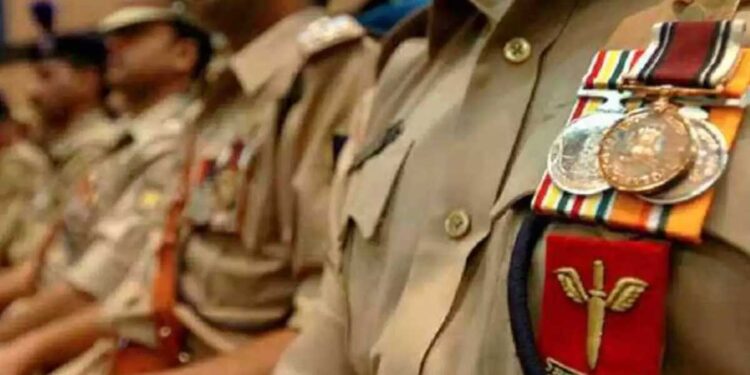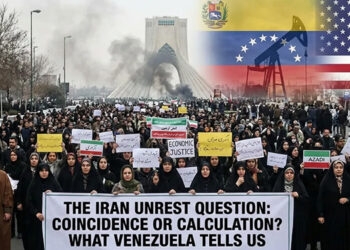Hundreds of IPS officers retire from various vital positions, and their shelf life is short; most of them steadily slip into oblivion and are soon forgotten. On average, each officer puts in about thirty-five years of dedicated service for the cause of police in different capacities. By sheer age, they are superannuated and rendered “useless” to society and others. Most of these retired people are physically and mentally fit and still capable of meeting profession-related requirements due to their enormous exposure and valuable expertise. It is perhaps time to assess and take stock of how to appropriate the services of such an enriched lot of retired IPS officers who have done the country proud and have always stood in the first line to protect our security interests.
During the long period spent in the police, the IPS officers are thoroughly familiar with complex investigations, criminal laws, jurisprudence, law and order, public dealing, intelligence assessment, VIP security, political evaluation, cybercrimes and many more diverse natures of responsibilities. It is, therefore, evident that all these areas can be covered in some form or the other by many retired officers as they are not only adequately experienced, but their confidence level is so high that they can deliver almost every aspect of the feature mentioned above. Indeed, all such officers may not necessarily meet the requirements of a post-retirement job. Yet, most are well equipped to address the needs with ease, thus coming to the aid of the different police formations and society.
Ironically, however, on the ground, the reality is far from what we are discussing now. It is a struggle for retired police officers to secure a slot to do the needful as once superannuated, their utility or forte is overlooked, thus depriving the community and society of reaping the harvest from such police officers. Their appropriation would automatically meet the shortfall of the State police setups, which are often depleted with inadequate strength. The pressure is so much that they often compromise the quality of professional coverage of any given assignment. For example, a retired officer with vast experience can be suitably utilized for community policing by interacting with civil societies and the general public to create awareness in diffusing a communal situation which is quite rampant today in many States. Such meaningful interaction by a mature lot of retired personnel might not only instil confidence amongst the public but also calm down rising passions in some religiously extreme communities. Also, retired police officers with a background in handling VIP security responsibilities can be called in to share their experiences with new officers in the same sphere of activities to increase their professional efficacy. In routine investigation cases, where the current investigating officers might find it challenging to handle, the retired lot can give a sense of direction through their wealth of experience, making the investigations more meaningful, culminating in a logical conclusion and turning them result oriented. We have seen a complete amateurish approach in solving several complicated cases like the Sushant Rajput case, case of Arushi murder case, the Nithari incidents of disappearance and murder etc. With a reasonable amount of conviction, it can be said that the retired stock of officers can fit the bill, especially those with long associations with CBI and other investigating agencies.
Similarly, retired intelligence officers with comprehensive knowledge of the subject and proficient assessment capabilities and analytical skills can be engaged in imparting training based on their experience to the various State intelligence machinery. Having said this, the new lot might find the training and discourse spelt out by the retired lot as primitive or outdated. Still, they can sift through the training and accept relevant, acceptable and applicable learnings under the prevailing circumstances. Rejecting them all together might appear to be a harakiri for the new generation of police officers. This point is underscored judging by the newspaper reports and other open inputs; we find a lot of gaps in these areas, which the wisdom of the older lot can appropriately fill in. In the same vein, it is pertinent to point out that very recently, a top cop retired from service with a stellar record of professional expertise in handling cybercrimes and, in most scientific forensics based, manner without any takers for his expertise. It is indeed disheartening to see officers with an unblemished track record seeking a forum to volunteer their services.
By highlighting this critical issue, the idea is not to project that the
retired lot is necessarily looking for monetary gains. On the contrary, most want their identity or recognition to keep their dignity intact and respect earned during the service. This may not always be feasible but psychologically speaking, ignoring the professional understanding of a
professionally acclaimed and decorated police officer impacts adversely on the psyche of retired cops. For argument’s sake, the police platforms for retired officers, in conjunction with the concerned section of the Ministry of Home Affairs (MHA), could perhaps think of evolving a mechanism of maintaining a list of retired officers, expertise-wise, and based on their excellence in a particular field, ask the police training institutions and State police agencies to appropriate their services to the best advantage of all concerned. This would be a good move to give due recognition to retired police officers.
It is also relevant to point out here that retired officers
from the Armed Forces often get absorbed or accommodated in many positions in government and semi-government locations. A similar exercise could be drawn up for retired cops as well. Such a step is also likely to boost the morale and confidence of a retired cop, raising his comfort level amongst his immediate family and society.
Besides the IPS, many retired members also belong to the Central Armed Police Force (CAPF). They are also fit, disciplined, well-trained and, by and large, very dedicated. Depending on their expertise, such retired personnel could also be utilized to serve national interests. The retired IPS and the CAPF lot are often allured by the corporate sectors using them for liaison and Public Relations (PR) exercises, which to my mind, compromise their dignity and self-esteem which they had held so high during their service period. It should, therefore, be the collective responsibility of the concerned to ensure that people (those willing) from the retired fraternity are appropriated to suitable positions so that they can live the rest of their future with dignity and honour. Under these conditions, harnessing the services of retired police officers merits serious consideration.








